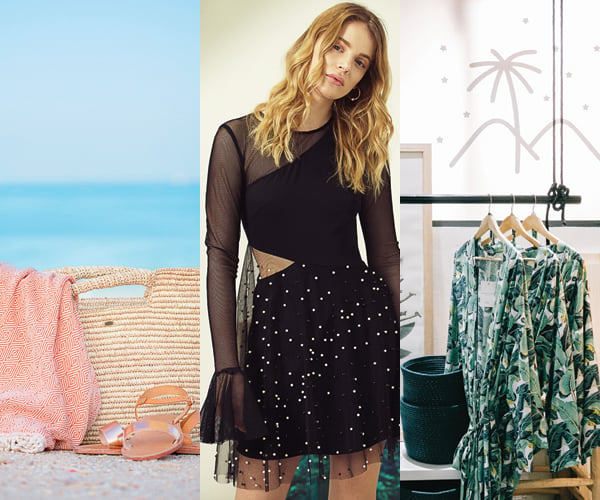From second-hand designer goods and ethically produced resortwear to great goodies for your home, these UAE-based businesses are leading the charge against fast fashion.
Oni Earth-Kind Fabrics
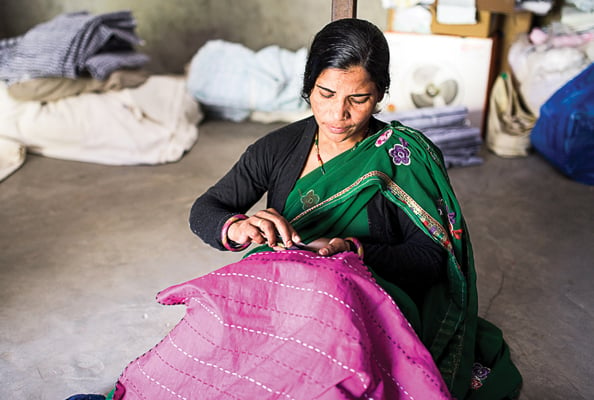
A love for India and the desire to support the “slow fashion” movement was the driving force behind Oni Earth-Kind Fabrics’ inception. Founded by Nea Ferrier and her husband Mark Rodgers in 2015 following a visit to Rajasthan, this Dubai-based brand offers handcrafted quilts and kanthas in rich colours and eye-catching prints, made by women from Jaipur and Bagru. Pieces utilise traditional Indian design techniques, such as Dabu printing, a Rajasthani process where clay-mud is applied to fabric using a woodblock. The cotton used is certified pure organic by the Global Organic Textile Standard, while the non-toxic dyes adhere to Reach international standards, a European Union regulation that looks to protect both humans and the environment. Safe and ethical work practices are also an integral part of Oni’s ethos. No child labour is ever used and employees make their own fair wages from their craft while working in safe environments.
Bedouin
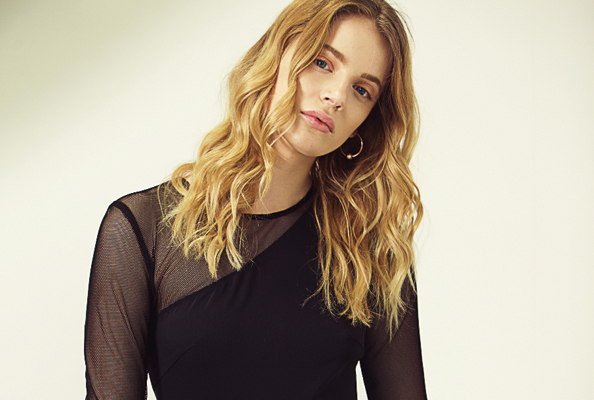
It was during a stint working in Bangalore that British-born designer Andraya Farrag saw, first-hand, the ethics of outsourcing clothing production, an experience so profound it drove her to launch her own ready to wear label, Bedouin, in 2014. Founded with a strong ethos of corporate and social responsibility, the label now aims to create pieces that are made to last, reducing the amount of waste so often associated with fast fashion. Farrag works closely with the suppliers of her fabric – located in Japan, Italy and Spain – which allows her to trace the fabric’s production history, and she even incorporates off-cuts into her designs to negate waste. To ensure work practices are kept to a high and ethical standard, Farrag works directly with Dubai-based artisans, all from a single, small family-owned business, rather than outsourcing the production process.
Read:
We’ve Got A Huge Style Crush On This Lebanese Label’s Angelic New Collection
Six American Brands You Didn’t Realise Shipped To The UAE
Phemke
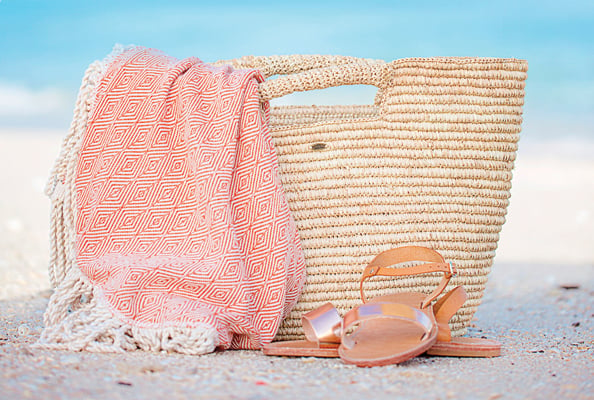
Founded in 2016 by Femke Speelman, Phemke is resort wear with a conscience. The Dubai-based brand currently offers everything from swimwear and bags to jewellery, towels and shoes, and is available in resorts in Oman, the UAE and the Seychelles. All items are made from sustainable materials such as organic cotton, modal and linen, in collaboration with small, often family run, businesses, Fairtrade organisations and global NGOs. Many of these groups look to offer women in developing economies a way to support both themselves and their communities. The NGO from Bangladesh that creates Phemke’s jute beach bags, for example, helps widowed and divorced women learn a trade and become financially independent. Phemke also hopes to create more conscious consumers through transparency, which is why the history of many of the items – the fabric used, how they were made and by whom – can be read about on the brand’s blog.
All Things Mochi
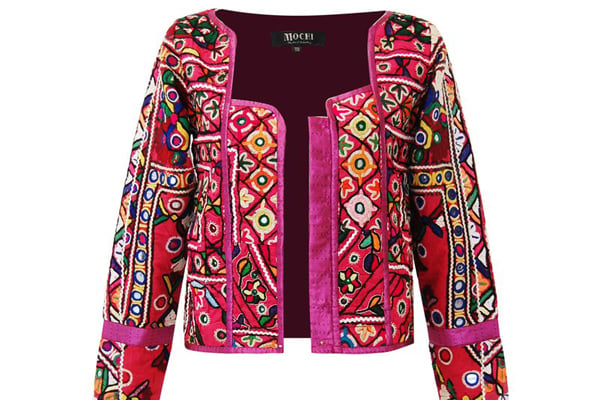
Ayah Tabari’s culturally-rich upbringing provided a foundation for the creation of her fashion label, All Things Mochi. The brand, founded in 2013, works with local artisans from across the globe, including Morocco, Thailand, Palestine and Uzbekistan, and each of the ready to wear collections showcases embroidery techniques specific to one culture, from a bold mini crop set from Jaipur to a charming butterfly top from Hungary. By working closely with communities, the team creates jobs and opportunities for women in these regions, boosting their standard of living and purchasing power.
FBMI
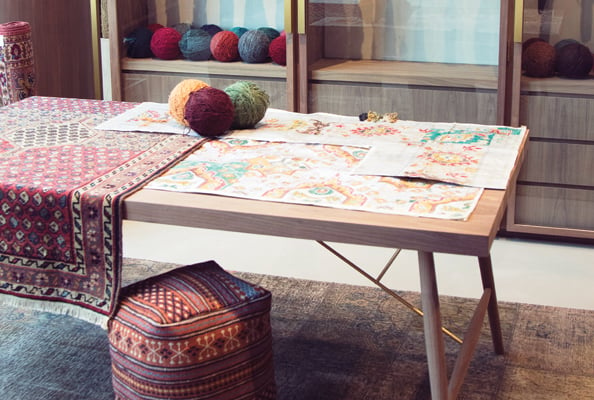
Giving back to the people of Afghanistan, and more specifically offering the communities in Jalalabad and Kabul a dignified way of earning an income, is at the heart of the Fatima Bint Mohamed Bin Zayed Initiative (FBMI). This homegrown interiors company and social organisation was first established in 2010 and has since employed more than 4,000 individuals, 70 per cent of whom are women. Employees create beautifully hand-knotted carpets, embroidered furniture and local handicrafts, which are sold in the UAE, UK and USA. All pieces are made using traditional techniques, and each worker receives training in these particular skills. Employees and their families are also provided with free access to healthcare, while those with children are required to enrol them in a free education initiative.
Read:
Five Long-Wear Blushes That Truly Don’t Budge Over A Whole Day
Eight Things We Know About Huda Beauty’s Upcoming Foundation
Tribe

Dubai-based interiors brand, Tribe, features a wide range of rugs, furniture, lighting and decor, all from global and local brands with Fairtrade, socially responsible and environmentally friendly practices. Founded by Jo England, the brand stocks labels like The Dharma Door, which works with Bangladeshi women to offer them the opportunity to learn a trade and support themselves and their families. Tribe even has its own ethical furniture line, derived from sustainable materials such as bamboo and rattan, which regenerate faster than most trees and create a source of income in rural areas when harvested.
My Ex Wardrobe

Based on the ethos of ‘reduce, reuse, recycle, re-own’, My Ex Wardrobe was launched in 2011 by three expat sisters who hoped to provide a fashionable and socially conscious way of upcycling clothing. Everything from pre-loved party dresses and jumpsuits to accessories and shoes are on offer, customers can either shop online or via pop-up events in both Dubai and Abu Dhabi, while selling items is equally straightforward and can be set up online. Ultimately the brand hopes to build what it calls “a community of like-minded people” who are passionate about style but also want to do their bit for the environment.
Georges of Dubai
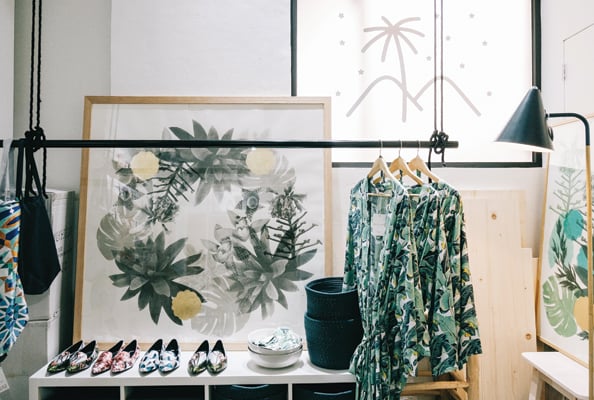
Eco-friendly house cleaners, organic cotton baby wraps and handmade, sustainable lip balm are but a few of the ethically made items found at Georges of Dubai. The lifestyle concept boutique, founded by Australian interior designer Georgina Trigg, features brands from Australia and further afield, many with an ethical edge. One of these labels, Ayam Africa jewellery, was founded by Elizabeth Glaysher in 2004 and offers earrings, necklaces, bracelets and rings, all made by artisans in Nairobi, where Glaysher was born and raised. Each piece takes inspiration from a number of African cultures, including Kenya. What Glaysher describes as initially a small journey has turned into a much larger business, one that utilises fair trade principals where employees earn a living wage, and work in a safe, clean and comfortable environment.
Read:
The Best Anti-Shine Products To Keep That Summer Sheen At Bay
Five Foundations That Really Won’t Budge During A Humid Summer
The Orenda Tribe
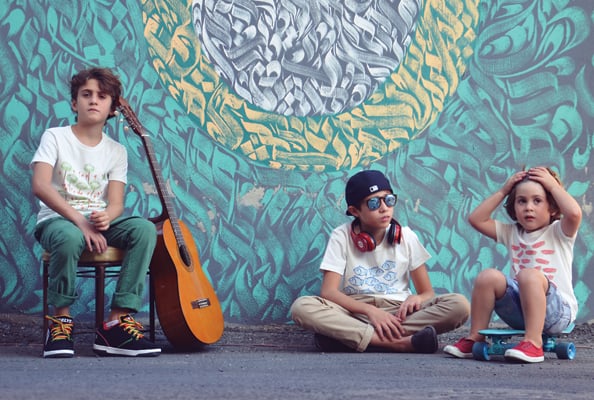
The importance of art and, more specifically, how it helps children in distressing situations by offering non-verbal ways to communicate and build confidence, is what drives The Orenda Tribe. First founded by Zaid Souqi in 2016 after he worked with The Lonely Road Foundation in Johannesburg, South Africa, the lifestyle brand brings art projects to children in developing communities and refugee camps, like the Za’atari Refugee Camp in Jordan. In order to fund these activities, the company sells T-shirts featuring the artwork created. Each shirt – available for adults and children – is made from 100 per cent organic cotton, and packaged in recycled materials. The brand is also in the process of tailoring an art curriculum for children from within these communities.
yApparel
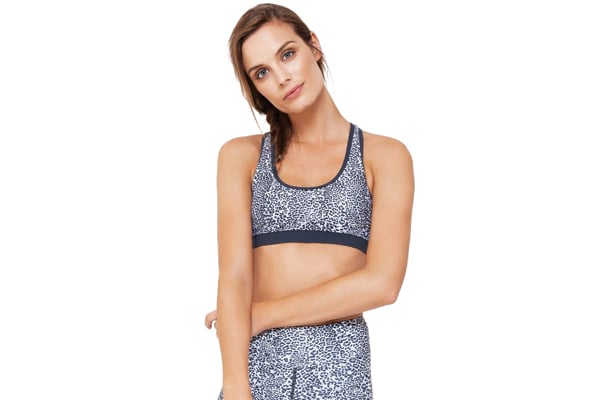
When Dina Ghandour first moved to the UAE in 2010, she immediately noticed a significant lack of high-quality, ethically-created yoga wear. Ghandour, wanting to change this, launched yApparel in 2014, the UAE’s first multi-brand boutique to specialise in yoga apparel and accessories. The company currently stocks small brands from around the globe, all with a basis in sustainability and social responsibility. Dharma Bums, for example, is a small Australian women’s yoga brand that specifically works with equally small Australian-based manufacturers, and uses only animal-free materials. Meanwhile, JadeYoga, an eco-friendly, family-run American business, uses only natural rubber to create their products, and plants a tree for every mat sold.
This article was originally published in Good magazine
Image: Getty, supplied








